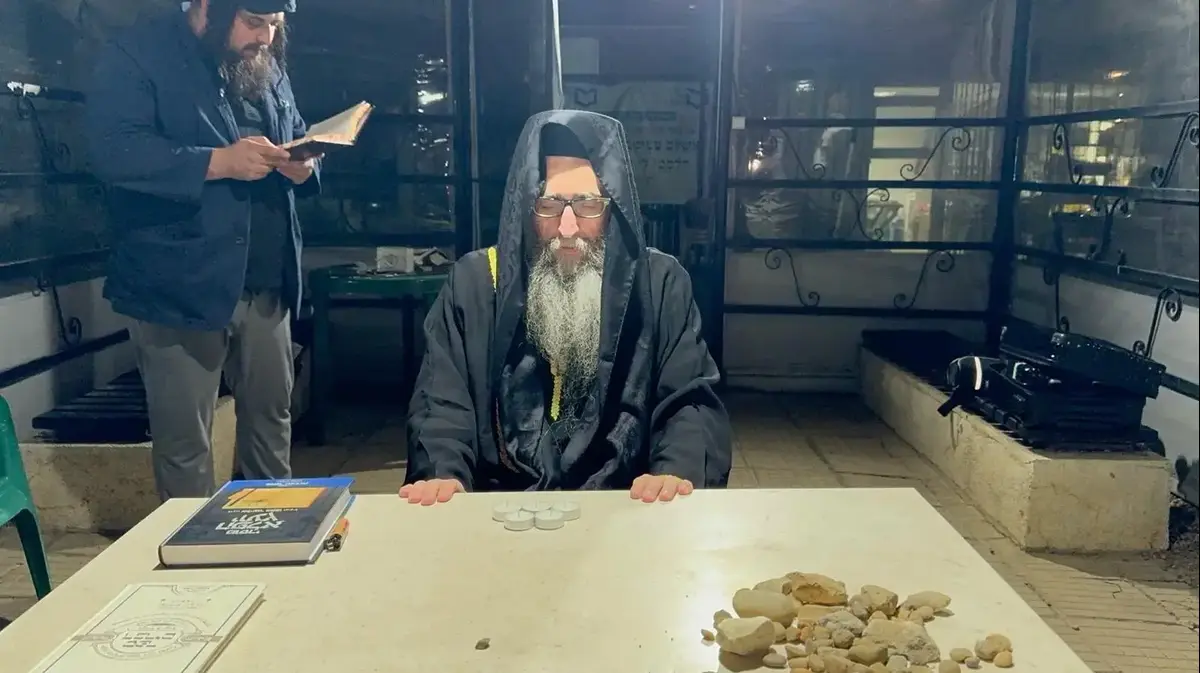Enlarge image
CDU politician Papo
Photo: CDU
The Kiel-Ost constituency was always considered a safe bet for the SPD.
No other party has ever won the direct mandate there – until Seyran Papo took office.
In the state elections last Sunday, the CDU politician surprisingly won the constituency.
Ironically, against the state chairman of the SPD.
Papo is the first CDU MP with a migration background in the Schleswig-Holstein parliament.
And maybe also the first with a left past.
Because the 34-year-old has already been a candidate for the state parliament - at that time, however, as a member of the Left Party.
A few years ago she joined the Christian Democrats.
In an interview, Papo talks about the path from the left to the CDU, says why her name once appeared in a report by the Office for the Protection of the Constitution and how her own migration history shapes her view of politics.
SPIEGEL:
You are the first CDU MP with a migration background in the Schleswig-Holstein state parliament.
What does that mean for you?
Papo:
It's a really nice feeling.
I think it's important that we as a party represent all parts of society, including migrants.
SPIEGEL:
In 2022, it has long been normal for other parties to send MPs with a migration background to the state parliament.
What's going on with the CDU?
Papo:
Yes, the CDU can do even better.
We need people with a migration background in the party.
We need to make a compelling offer to the people out there.
And in Germany there are many migrants who have been living here for a long time and have integrated well.
The CDU must show them: We take you, your problems and your concerns seriously.
My candidacy was an important signal.
And she was successful too.
SPIEGEL:
You come from a Kurdish family.
As a child, you and your family fled Turkey to Germany.
How did that shape your view of politics?
Papo:
I know the problems that many migrants face.
When I came here, there were a lot fewer options than today.
For example, hardly any language courses were offered.
That's why I couldn't go to school at first.
They didn't even know what to do with me without knowing German.
I then taught myself the language, for example via television.
Experiences like this shape you, of course, and I had to work my way up bit by bit.
That's one reason why I became politically active.
Because I think it's important that people with a migration background get support if they want it.
SPIEGEL:
The CDU isn't the first party you've gotten involved with.
You used to be a member of the Left Party, and in 2012 you ran for the state parliament.
How did that happen?
Papo:
That was a few years ago.
At that time I was in a rather left-wing circle of friends, which of course influenced me.
In addition, I was particularly interested in migration policy and had the feeling that the left made the most offers there.
But at some point I realized that I didn't identify with many aspects either.
Then I left and withdrew from politics for a while.
SPIEGEL:
The step from the left to the CDU is a pretty big one, isn't it?
Papo:
These are two very different parties, yes.
But life doesn't always go in a straight line.
When at some point I felt like getting more involved again, I looked at all the party programs.
The CDU convinced me the most, mainly because of the security policy aspects.
I have been working as an interpreter for judicial and security authorities for years.
I know how sluggish procedures sometimes run there.
Strengthening the judiciary and the police is therefore very important to me.
That's why I joined the CDU.
SPIEGEL:
During your time with the Left Party, your name appeared in a report by the Office for the Protection of the Constitution.
What happened there?
Papo:
As a person in the left-wing spectrum, you are of course increasingly targeted, especially if you also have a migration background.
I was mentioned in the report because Kurdish organizations rated my candidacy for the Left Party positively at the time.
Of course that was uncomfortable.
But I was never observed or anything.
SPIEGEL:
Was that a topic in the CDU?
Papa:
Not really.
Since I work in security, I am checked regularly anyway.
And there were never any problems.
SPIEGEL:
A few years ago, Daniel Günther brought up a possible cooperation between the Left Party and the CDU in the East.
As an ex-leftist, what do you think of that?
Papo:
I think that's difficult, the parties are too different for that.
SPIEGEL:
In the state elections, you won the Kiel-East constituency for the CDU, which otherwise always went to the SPD, against the state chair of the Social Democrats.
How did you do that?
Papo:
I deliberately chose this constituency because I had the feeling that there was potential there that we hadn't really tapped into yet.
Kiel-Ost is very colourful, very diverse.
At the same time, there are also serious problems, such as drug trafficking.
That's where I started and talked to the local people about how we could make the area safer.
And I stood up for the police.
At the same time, my own biography was also important.
At the campaign stands, I often had the feeling that people saw me as a role model.
They could identify with me and my migration history.
SPIEGEL:
The CDU was also very successful overall in Schleswig-Holstein.
What can other national associations learn from you?
Papo:
We had a huge bonus from Daniel Günther.
He's been doing a very good job for five years, people like him.
I heard that a lot during the election campaign.
MIRROR:
That's the tip?
The other state associations need chairmen like Daniel Günther?
Papo:
At least it doesn't hurt.
As a party, we have also positioned ourselves broadly for the election.
Women ran as candidates, as did people with a migration background, teachers, police officers and farmers.
We bring many different perspectives with us.
That goes down well with the voters.
SPIEGEL:
Women are still underrepresented in the parliamentary group.
Only a quarter of the CDU deputies in the state parliament are women.
Papo:
Yes, we had equal numbers on the list.
But there were more men among the direct candidates.
We've already taken a step in the right direction this time.
That's the task for next time: bring even more women into the faction and become a bit more diverse.









